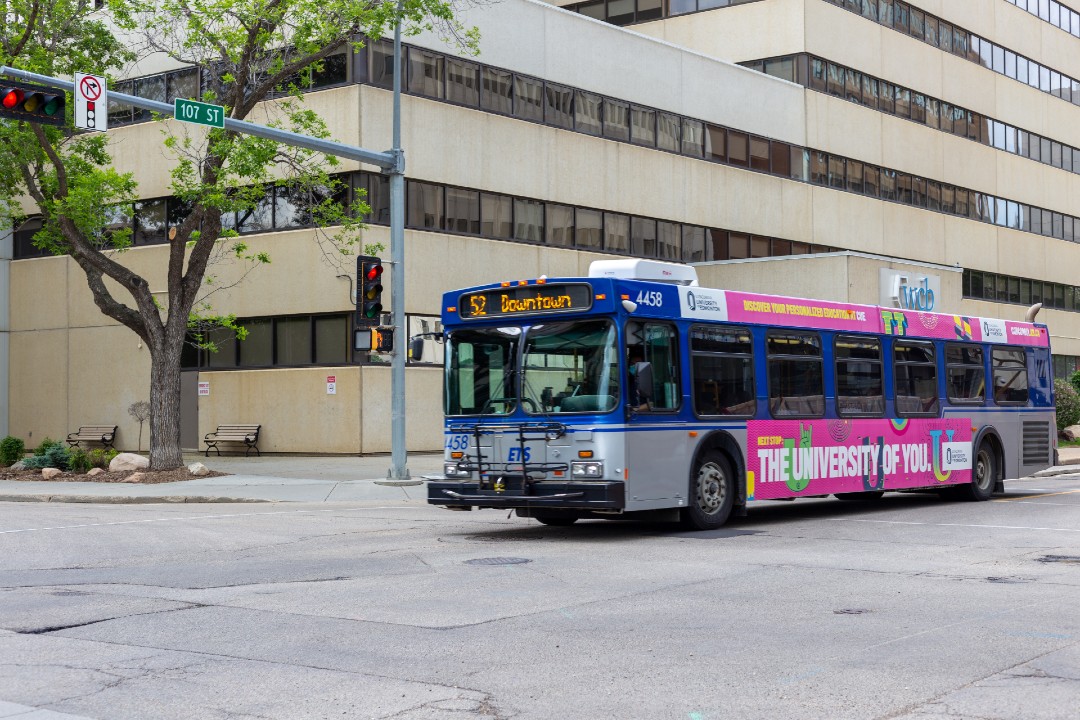This week will be the last of committee meetings in 2023, with councillors set to learn more about the city's progress on its truth and reconciliation efforts, district planning, and improving transit.
Community and public services committee will meet on Dec. 4, urban planning committee will meet on Dec. 5, executive committee will meet on Dec. 6, and a special council services committee will meet on Dec. 6. A special evaluation committee for the city manager and city auditor will round out the week, also meeting on Dec. 6.
Here are some of the central items on the agenda:
- The city has completed or taken action on nearly all of the Truth and Reconciliation Commission of Canada's 94 Calls to Action that it determined it could accomplish as a municipality. The city said it identified 39 of the calls and has started work on or completed 34 of these, according to a report that will be presented to councillors on Dec. 4. The city has not started work on the call to waive costs for name-change processes for families whose names were changed in the residential school system, and has not fully implemented Jordan's Principle. Actions the city has yet to start involve other governments, specifically to eliminate barriers to the creation of Indigenous healing lodges in the correctional system, to require denominational schools to teach Indigenous spiritual beliefs, and to amend the Physical Activity and Sport Act.
- The city has revised proposed district planning documents after public engagement, which will be presented to councillors at urban planning committee on Dec. 5. The node and corridor policies now support low-rise and mid-rise buildings through the entire node and corridor area, while taller buildings will be directed to sites along major roadways, near mass transit stations, and major intersections. Other changes include adding priority growth areas, where more residential and commercial development is expected. The district planning policy is scheduled for public hearing in the second quarter of 2024.
- The Edmonton Transit Service Advisory Board put forward several recommendations to improve rider experience. The board suggested increasing cleanliness by hiring dedicated cleaning staff and enhancing the perception of safety by better understanding how riders feel in transit spaces. The board wants council to continue funding the on-demand transit service, demand for which tripled since September 2021. Another report that will be considered at urban planning committee on Dec. 5 details how on-demand transit could be co-mingled with DATS for efficiency, as some smaller municipalities did during the pandemic when demand was lower. The city said it's unsure whether a similar approach could work in a city the size and layout of Edmonton.

City councillors will hear about some recommendations to make transit better at an urban planning committee meeting. (Mack Male/Flickr)
Here are some of the other new agenda items:
- The city is trying to find ways to get developers to build more affordable housing, after repealing a policy in 2021 that yielded just 28 units of near-market housing over the nearly 15 years it was in place. One new option is creating a voluntary partnership program where a roster of affordable housing providers could be matched with developers to build and operate affordable housing. Another option would be to create an affordable housing investment fund, which would offer loans to developers of affordable housing units. An inclusionary housing program is another option, which would require affordable housing units as a condition of subdivision approval or a development permit. The city is also considering off-site levies, meaning developers would be required to pay a fee that would go towards affordable housing. Off-site levies are already used in new developments for infrastructure such as fire stations. Developers are supportive of the first two options, which are voluntary, and are opposed to the other two, as they include additional requirements and fees.
- Council will continue a discussion from October about vulnerable and homeless Edmontonians at a community and public services committee meeting, including hearing lessons learned from the city's 2017 Plan to Prevent and End Homelessness.
- Administration said there are ways to improve support for closed and shared streets downtown and identified several routes that would be the best candidates for temporary car-free use. Streets that have pedestrian-oriented buildings, enhanced streetscapes, limited through traffic and bus routes, and are adjacent to programmable spaces like parks and squares are ideal for car-free streets, administration said. The city said it is working to foster the conditions for car-free spaces and is looking into more opportunities for temporary city-supported closures in priority areas like Rice Howard Way and 104 Avenue.
- Executive committee will review a set of bylaws that would see the buildings in Hawrelak Park, excluding the Heritage Amphitheatre, designated as municipal historic resources.
- Executive committee will get an update on work to revitalize Chinatown. The report said stakeholders have lauded the creation of the Healthy Streets Operations Centre, the Community Well-being and Safety Task Force, and the Chinatown Safety Council. Work is also underway to refurbish lantern lights in the area, replace the Harbin Gate, and pick up needles regularly. Next, the city plans to survey vacant lots and their landowners, and develop an investment campaign to attract new businesses.
- In a private meeting on Dec. 8, administration will give a "consultant update" to council.
Meetings stream live on YouTube on the Chamber channel and River Valley Room channel.
